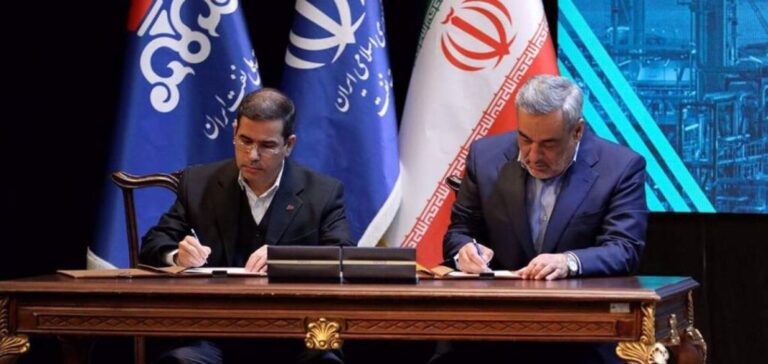Iran has officially launched a major project aimed at maintaining its gas production from the offshore South Pars field. Located in the Persian Gulf, this field accounts for about 70% of Iran’s total natural gas production. The announced $17 billion investment will focus on counteracting the reservoir’s natural pressure decline through the installation of approximately 40 compression platforms and hundreds of kilometers of subsea pipelines. Current daily production stands at approximately 716 million cubic meters of natural gas and nearly 700,000 barrels of condensates.
Available reserves and current production
The South Pars gas field is among the largest in the world, holding proven reserves of around 51 trillion cubic meters of natural gas, equivalent to approximately 313 billion barrels of oil equivalent (BOE), plus around 50 billion barrels of condensates. Combined annual production, including natural gas and condensates, totals approximately 1.82 billion barrels of oil equivalent. At this extraction rate, the available resources of the field could theoretically be exploited for nearly two centuries. However, the intensified recovery methods now employed could significantly accelerate the depletion of these reserves.
A Shared Race with Qatar
The South Pars gas field is jointly shared with Qatar, where it is known as the North Field. Qatar has significantly increased its gas deliveries to Europe and Asia since 2022, securing major long-term contracts with countries including Germany, Italy, China, and South Korea. Unlike Iran, Qatar is not subject to major international sanctions, allowing it to make substantial investments in gas infrastructure, including advanced Liquefied Natural Gas (LNG) terminals. This situation has pushed Iran to intensify investments to safeguard its share of the resources from the shared reservoir.
Export Restrictions and Alternative Solutions
Due to American sanctions, Iran currently cannot directly export natural gas to European markets. Therefore, most Iranian gas production serves the domestic market and neighboring countries, primarily Turkey and Iraq. To navigate these sanctions, Iran employs indirect trading mechanisms, such as a potential gas pipeline agreement with Oman, using Omani facilities to liquefy and subsequently export Iranian gas to distant Asian markets. Additionally, Iran utilizes energy swap agreements with some countries avoiding direct financial transactions subject to international restrictions.
Long-term Prospects
If Iran achieves its extraction targets through this significant investment, it expects to generate approximately $780 billion in additional revenue over the remaining lifespan of the field. Iranian domestic technical and industrial capabilities are expected to provide around 70% of the necessary infrastructure and equipment. This extensive project seeks to stabilize Iranian production and economically maximize the substantial reserves within South Pars.






















